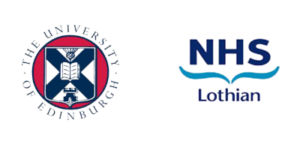UPDATE: Recruitment to this trial is now closed. Click here for more details on our News page.

Some hospitals are also taking part in a samples study called STOPPIT-M which is linked to the main STOPPIT-3 trial. This study will only be recruiting women pregnant with twins with a planned caesarean birth scheduled between 35+0 and 38+6 weeks gestation enrolled in the STOPPIT-3 trial.
Why are we doing it?
In this study, we will aim to explore how antenatal corticosteroids (ACS) work and why responses to ACS vary between babies. The main trial STOPPIT-3 aims to resolve uncertainty about whether ACS given to women with a twin pregnancy reduces breathing complications in twin babies.
In STOPPIT-M, we want to understand why ACS work for some babies, but other babies still develop problems. We know that ACS can directly cross the placenta and reach the baby. We think that ACS may “damp down” the babies own ‘stress response’ systems and that this may be the reason why some babies have problems such as breathing difficulties and low blood sugar levels.
What are we doing?
If the hospital is running this study, woman will be asked if they would like to take part in STOPPIT-M at the same time as they are asked about the STOPPIT-3 trial. If happy to take part, they will be asked to sign a separate consent form.
At birth, the surgical team will take blood samples from the woman and the babies’ cord (about an egg cup full). They will also collect some of the fluid that surrounded the babies in the womb and a sample of the placenta. This will not affect the woman’s or babies’ clinical care and there is no further data collected on top of the information collected for STOPPIT-3. In a subgroup of babies, we will also collect a saliva sample before and after a routine ‘heel prick’ blood test and we will sample a small section of the babies’ hair. These samples will allow us to measure the babies ‘stress response’ and overall stress hormone release.
If you want to know further information about this study please download the PDF below or ask your midwifery team.
Our team is committed to making research in pregnancy inclusive. We use terms such as ‘women’, ‘maternity’, ‘breastfeed’ and so on, throughout our website, publications and social media accounts, to refer to those who are pregnant, give birth and/or use their breasts to feed a child. We acknowledge that not all people who are pregnant, give birth, and/or breastfeed a child identify as women. It is important that evidence-based care for maternity, perinatal and postnatal health is inclusive and tailored to an individual’s wishes.

